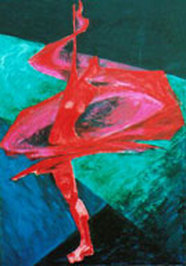PhD Thesis: The Ecological Body ~ extracts
Movement PsychotherapyI qualified as a Senior Registered Movement Psychotherapist in 2002.
In addition to these three primary sources, movement psychotherapy training and theory provided me with a western psychological context and set of skills within which to confront my own approach. The practice of movement therapy with different client groups allowed me to both re-contextualise and to test my own synthetic approach in a wide variety of contexts. Through my course, in parallel to the necessary therapeutic skills, I had gained some understanding of psychodynamic and systemic psychology, group therapy, evolutionary and developmental movement, and movement therapy with children. Throughout my movement therapy training I was inspired by developmental movement, by working with children, (particularly children with learning disabilities or with autistic tendencies) and by models of systemic therapy, which were new to me as an alternative (or complementary) view to psychodynamic theory. I noticed that all of these sources of inspiration demanded an embodied appreciation of pattern, evolution and moments of transformation in movement; an apprehension of mutual causality and co-created habits existing between people or between individuals; a deep trust that a person’s movement, seen as their psychophysical expression in that moment, could be engaged with therapeutically through movement as effectively as through words, rather than adjunctively to words; and, most of all, that I pay attention to context, to the situation and the environment. |
Thesis pages
|
